An authentic, autumnal slice of Puglia with The Thinking Traveller
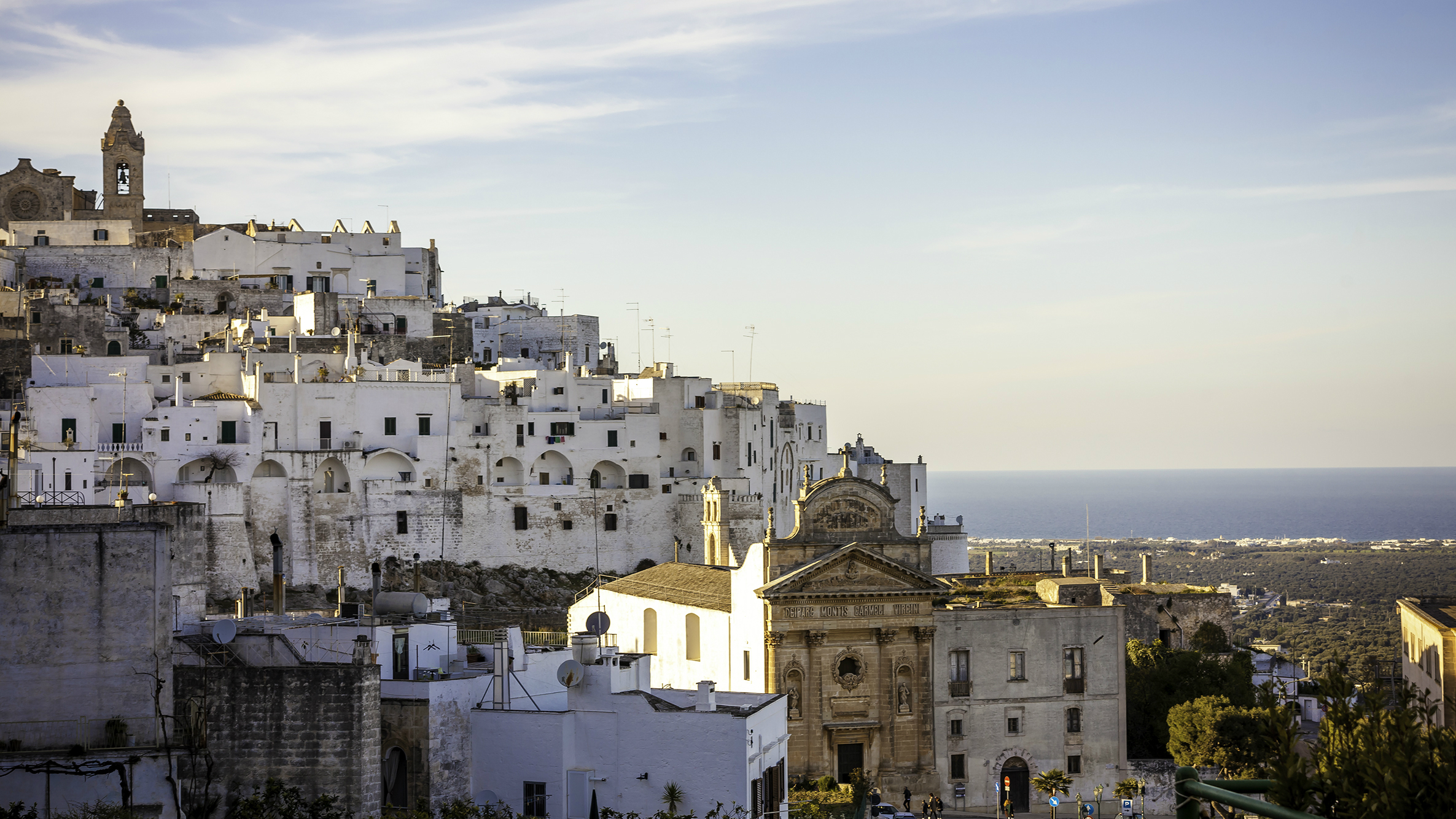
A free daily email with the biggest news stories of the day – and the best features from TheWeek.com
You are now subscribed
Your newsletter sign-up was successful
Autumn in Puglia, the south-eastern heel of Italy’s famous boot. At this time of year, in the olive tree-carpeted countryside, delicate light gently illuminates the amber leaves on the trees, and at night the roads are quiet. A huge harvest moon is set against an inky black sky, and in the fields below, tractors lazily make their way home.
Not all is quiet, however. During the day, the warmth of the midday sun still attracts hordes of tourists to the region’s gems. Among them, the unique and charming Unesco-protected Alberobello.
It would be impossible to visit Puglia and not marvel at the famous town’s trulli – the characteristic, conical rooftops typical of the Valle d'itria. There are 2,000 trulli in Alberobello (not to be confused with the actual homes – one home can have as many as fifteen trulli), but there are around 15,000 in the wider valley.
The Week
Escape your echo chamber. Get the facts behind the news, plus analysis from multiple perspectives.

Sign up for The Week's Free Newsletters
From our morning news briefing to a weekly Good News Newsletter, get the best of The Week delivered directly to your inbox.
From our morning news briefing to a weekly Good News Newsletter, get the best of The Week delivered directly to your inbox.
Built from the beginning of the 1600s until the end of the 18th century, the story goes that the basic stone huts were built by feudal lords who didn’t want to pay taxes to the King of Naples. Without mortar or cement, they were designed to be dismantled hastily if unwelcome tax collectors threatened to pay a visit.
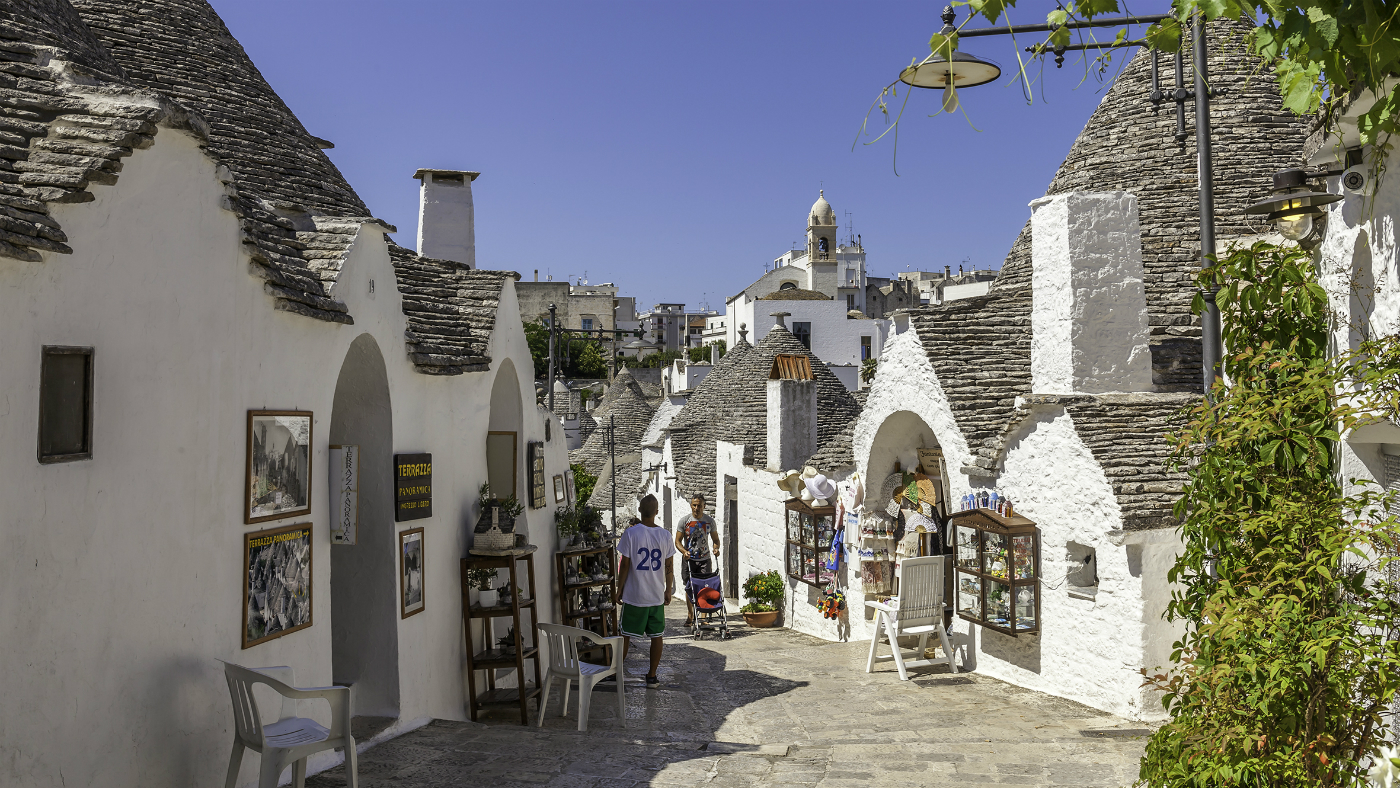
These days, throngs of tourists eating puccia pugliese (regional stuffed sandwiches), roam along the cobbled streets and in and out of shops selling knick-knacks. It’s a world away from a harder past – there would have been no electricity, no running water (the residents relying instead on collected rainwater), and no natural light in these simple homes. Our supremely knowledgeable tour guide Katerina pointed out how impossible it would be to live in a trulli today, apart from anything else, because of all the objects and items we cram into our modern homes. Ironically, today over half of the dwellings are now rented out as Airbnb homes – they’ve become curiosities in a world where insatiable consumption dominates our lives.
The Thinking Traveller, a villa rental company specialising in luxury villas in the Mediterranean, has the answer to the region’s busy tourist hotspots. A far cry from the rudimentary, frugal existence of the historic trulli, the company offers a range of enormous, exclusive villas which are super stylish, tucked away from the crowds, and served by full-time local teams who know the region well.
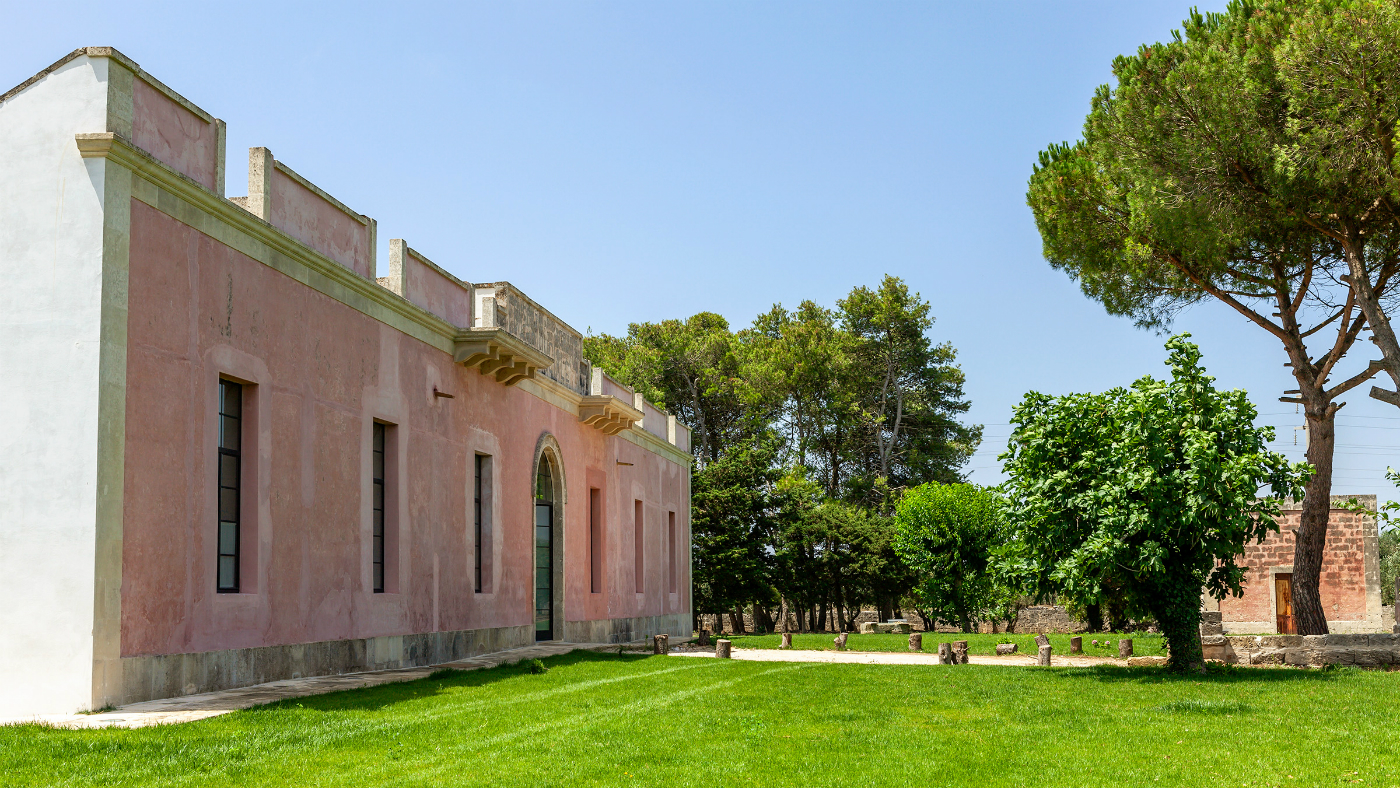
The company boasts several exquisite villas in the region, among them Il Tabacchificio, which as the name suggests, is an old converted tobacco warehouse. The beautiful pale-pink ex-factory, with its original sign ‘consorzio agrario provinciale’, still visible, was first built in the 1930s for tobacco processing.
A free daily email with the biggest news stories of the day – and the best features from TheWeek.com
Roughly 100 employees, mostly women, worked here, before it later housed Polish soldiers during the Second World War. It was then used to store wheat and cereal during post-war rationing, before being sold to private owners in the 1960s.
It’s something quite different now – a stylish, luxurious villa boasting six elegant bedrooms and seven bathrooms, with thoughtfully placed vintage pieces dotted about – old film posters, London tube maps, modern, quirky furniture – all set against whitewashed walls and local stone. Its owners wanted to embrace the Japanese concept of Wabi-sabi – beauty, simplicity and imperfection – and within this evocative historic Italian space, it works well.
On request, the local Thinking Traveller team can arrange dinner to be cooked for you in the villa. Sitting down to antipasto all'italiana (local cheese and cured meats, bruschetta with grilled vegetables, and pitule – plump, fried dough balls) massa (a kind of pasta) with basil, fresh cherry tomatoes and cheese, vegetable omelette and grilled vegetables, roast potatoes, salad, and delicious figs and pomegranates from the garden, is a fine way to get any holiday off to the right start.
Not having to remember your room key, or put a sign on your door, makes the whole space feel homely, as does the freedom to curl up on the sofa with a glass of wine after dinner. (And there’s someone to do the washing up afterwards, too.) In the morning, a (very cold) dip in the outdoor pool beckons, before breakfast is served in the sunshine.
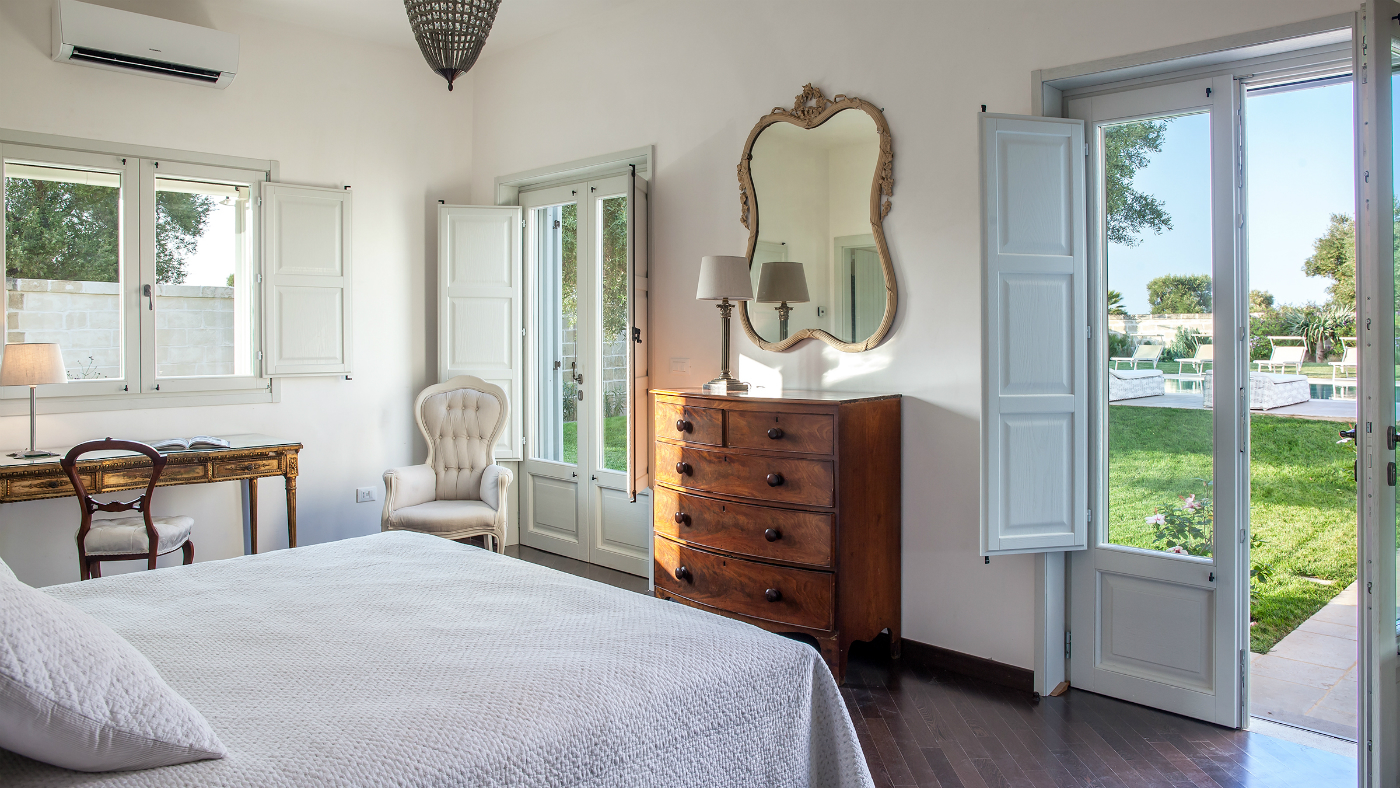
An even more sumptuous villa in the collection is Palombara Piccola. An interior designer’s dream, it is bright, light and airy with delicate, charming splashes of colour – a ceramic cockatoo here; a sumptuous blue velvet sofa there. Outside beautifully landscaped fragrant gardens surround a turquoise pool, set against 800 year-old olive trees. The outdoor area really is exceptional – it would make the most glamorous backdrop for an outdoor party.
Dinner, once again whipped up by a pair of gastronomic geniuses, is utterly delicious and, on request, (and perhaps unusually considering the country) vegan. We’re served antipasti featuring seasonal fava beans, onions, grapes, olives and mandarin, lasagnette pasta with pumpkin cream and cardoncelli mushrooms, and a remarkably impressive panna cotta with almond milk and quince jelly, washed down with excellent local white wine. It certainly rivals anything you’d find in a top restaurant, but comes with the added luxurious benefit of being able to slink off to your bedroom when you’re feeling a bit pitule-esque.
The Thinking Traveller has the lowdown on the best things to do nearby, whether it’s arranging lunch at a fabulous restaurant in the beautiful whitewashed city of Ostuni, where chic, well-heeled Italians sip espressos and take selfies in the sun-dappled square, a pottery class in the delightfully charming town of Scorrano, or a trip to one of Puglia’s most renowned wineries, Duca Carlo Guarini, also in Scorrano.
The wine tasting takes place at the Guarini family’s 18th century palace, with its owner able to talk you through the region’s three types of grape variety, negroamaro, malvasia and primitivo. Puglia is also, of course, famous for its extra virgin olive oil. But, as anyone in the region will gravely tell you, supplies are under threat from a killer bug known as olive tree leprosy, thought to have been introduced to the country by a plant from South America.
“It’s been a disaster,” the owner of the vineyard tells us. In 2018 80% of oil production ground to a halt. Meanwhile, climate change is also making its presence felt. Unprecedented stretches without rain have been followed by monsoon-deluges this summer, making the harvest totally unpredictable. It’s hard to imagine the creeping threat of a warming world affecting the timelessness of the region, particularly its culinary traditions which rely so heavily on a reliable climate. It’s something that appears to be weighing on the company’s mind; discussions about how to make the villas as environmentally friendly as possible – removing single-use plastic for example, and ways to help travellers off-set their carbon emissions, on the agenda.
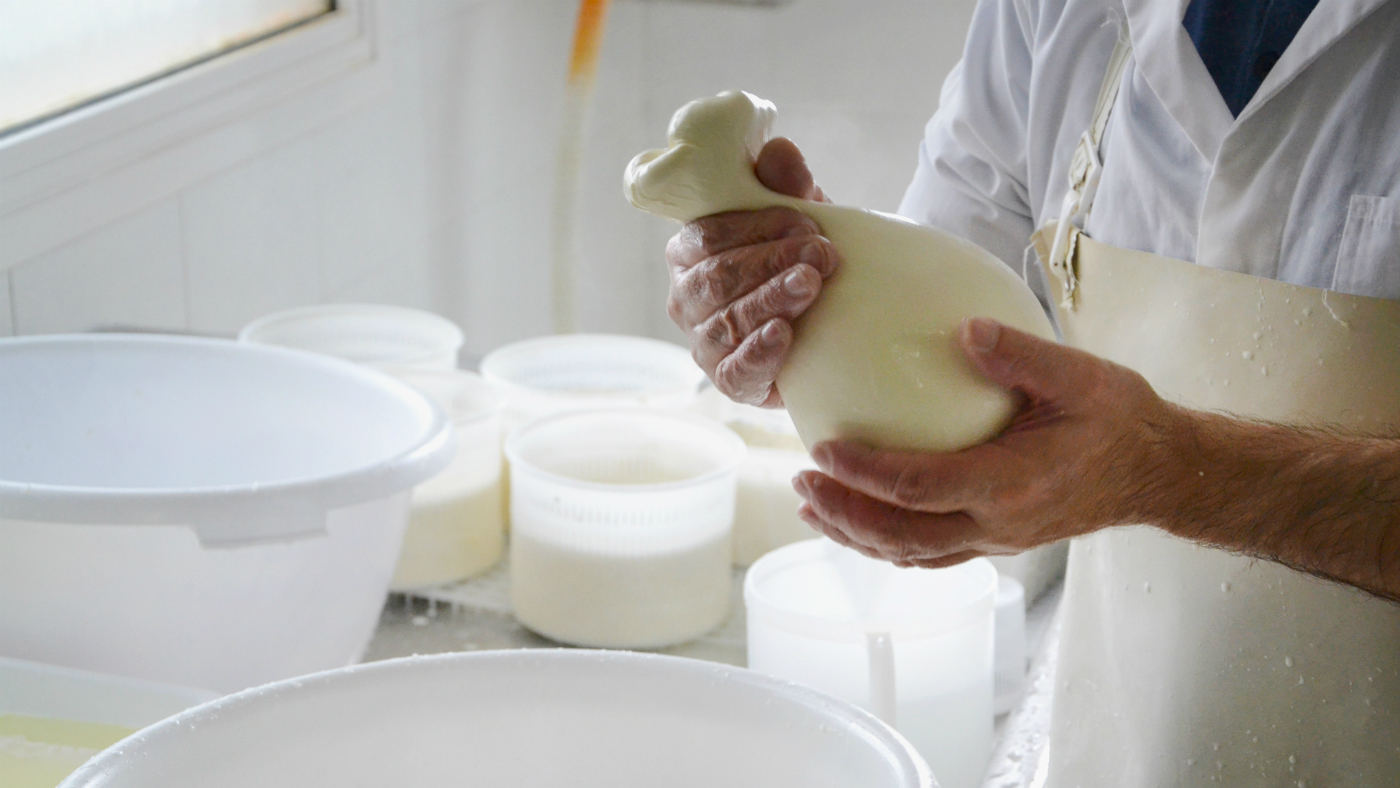
For the non-vegans, a visit to a local cheese producer, arranged by The Thinking Traveller, is essential. Caciocavallo, stracchinato, with a soft middle, ricotta (so light because it is twice-baked, as its name suggests), burrata, with its stracciatella pasteurised cream filling, aged provolone, ricotta forta – stirred once a week for a year, and fabulous mozzarella made from cow’s milk (not buffalo milk, which is found in the Naples region) are all produced here. Larger than life Gianni is in charge of the cheese, and his wife Mina bakes the bread. After a demonstration, a table groaning under the weight of cheese, wine, meat and bread is laid out. For cheese lovers, this is not to be missed.
Puglia boasts sunshine, exquisite food and tradition. Thanks to The Thinking Traveller, it also offers stylish accommodation tucked away far from the madding crowds. It is chic and opulent, yet homely enough to feel as though you’ve tasted an authentic slice of southern-eastern Italy. This is an excellent introduction to the region. The company’s impressive knowledge of the area and focus on comfort and hospitality ensures that you feel truly immersed in the region and well taken care of. It’s the perfect getaway for anyone who doesn’t want the stuffiness or formality of a hotel – but something rather more intimate, special and homely, set in stunningly persuasive Puglia.
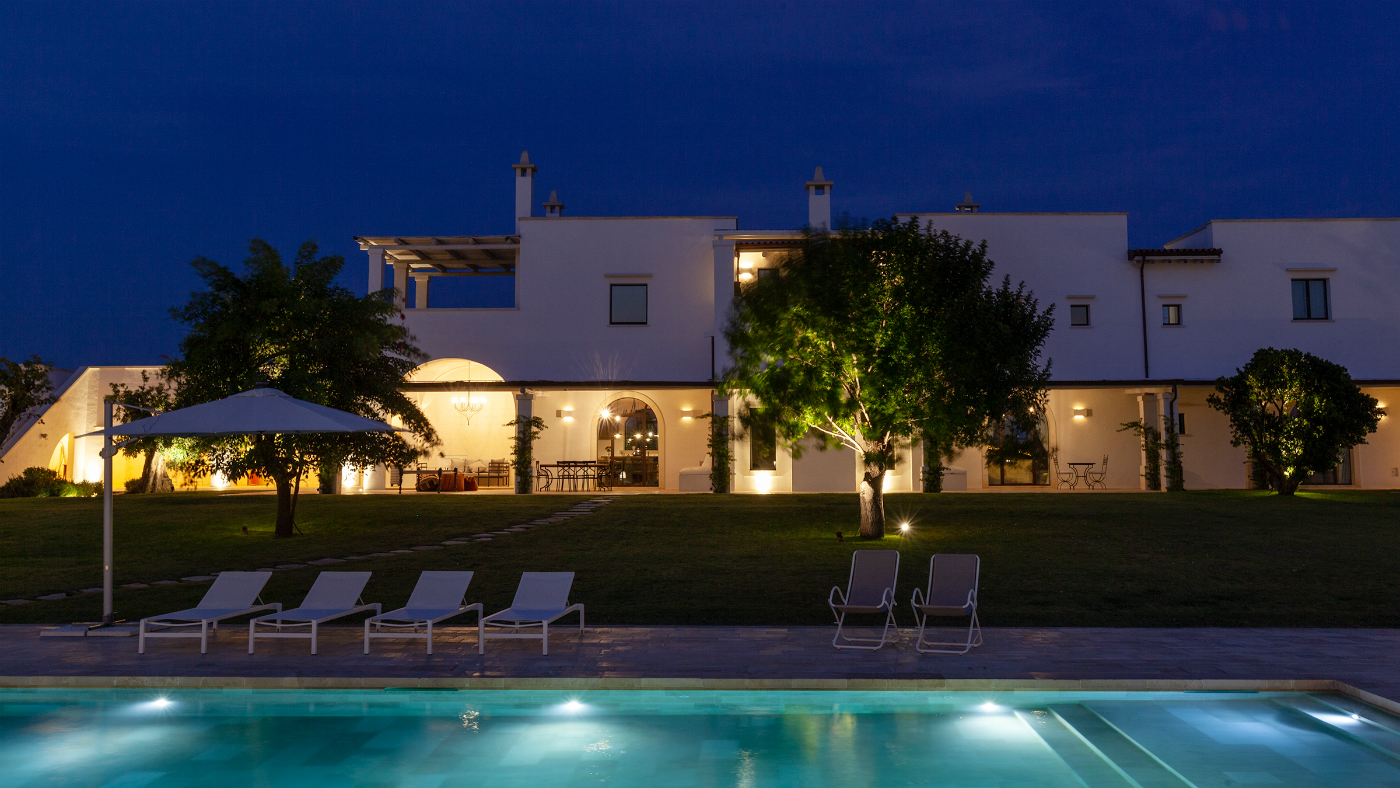
Il Tabacchificio: Price is dependent on occupancy: From £6,987 | $8,778 per week (sleeping 8)
From £8,045 | $10,707 per week (sleeping 12)
Palombara Piccola: Price is dependent on occupancy: From £5,026 | $6,314 per week (sleeping 8)
From £6,741 | $8,468 per week (sleeping 10). Price for in-villa cook: €90 for 2-3 people, €120 for groups of 4-6 people, €150 for groups of 7-12 people plus the cost of ingredients.
The villas are available to rent exclusively through The Thinking Traveller and the Think Experiences mentioned in the article can be arranged through The Thinking Traveller.
Felicity Capon is senior editor of The Week Junior, where she oversees the magazine’s international news section. She was the title’s editor for several years, during which she was shortlisted for the BSME Fiona Macpherson Best New Editor award. She also appeared on The Emma Barnett Show on Radio 5 Live, The Sarah Brett Show and the Media Masters podcast. She is a regular contributor to The Week Unwrapped podcast, and has written for The Week, The New Statesman, The Times, The Telegraph and Newsweek.